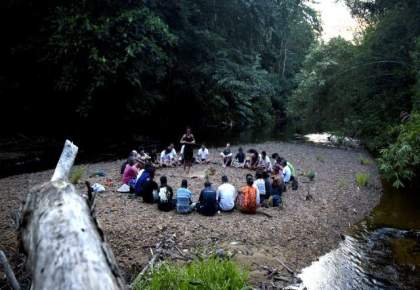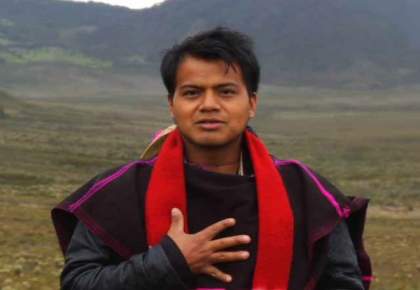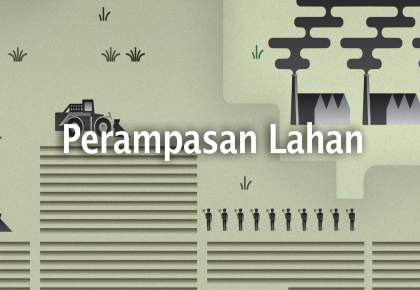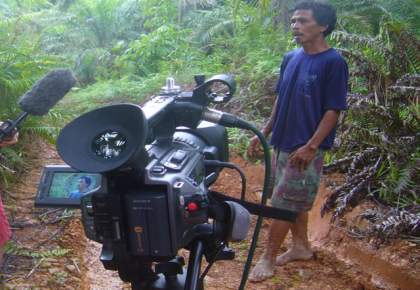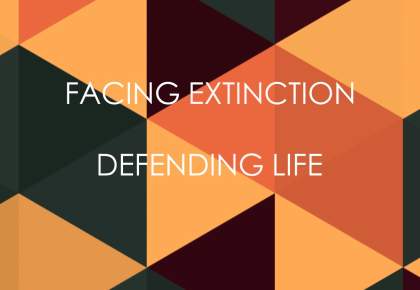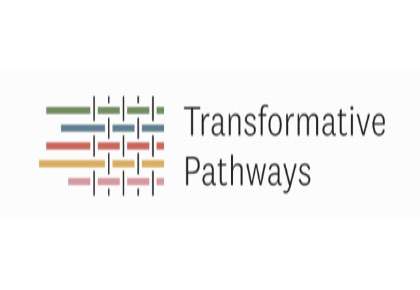Indigenous Education
-
Back to the Village: A Toolkit on Indigenous Education.
LifeMosaic, together with partners AMAN and YP-MAN, has developed a toolkit of resources on Indigenous Education.This toolkit is for indigenous educators, indigenous school initiators, or for anyone that is interested in education that helps sustain diverse expressions of humanity.
The resources help to inspire and train teachers setting up new indigenous education initiatives, and help to create debate and understanding about common principles of indigenous education as it has developed around the world.
The resources in this toolkit are available in Indonesian and English languages and will be screened in many rural indigenous communities around Indonesia where indigenous schools are being discussed and opened.
“This toolkit on indigenous education helps us to take notice that our indigenous mother tongue language is under threat and could become extinct if we don’t take steps to protect it. It helps us to be more convinced to continue educating our children in our own language and using our own culture. We have now started to make a digital dictionary of our language.” Widie Nurmahmudy, Kampung Batara School - Banyuwangi, East Java.
The toolkit includes:
- A book on Indigenous Education
- 5 Videos showcasing inspirational examples of Indigenous Education initiatives
- A Declaration on Indigenous Education in Indonesia - Cipta Gelar
- A selection of resources on Indigenous Education by other filmmakers, educators and organisations.
Book - Indigenous Education - Call of the Territory - Indigenous Education: The Call of the Territory is a book dedicated to the dynamic and exciting Indonesian indigenous education movement. The book provides an overview of what indigenous education is and why it is needed; investigates the roots of the Indonesian indigenous education movement; and describes a wide variety of decolonising educational initiatives that place indigenous knowledge, language and cosmologies at the heart of the educational experience. (Serge Marti / LifeMosaic / YPMAN 2019)
Film - Pamuaan - Centre for Indigenous Peoples Education - Pamulaan is an indigenous university created for the indigenous youth of the Philippines. Its main task to create culturally appropriate and relevant degree level courses, producing indigenous graduates with knowledge and skills but still rooted in their own cultures. (LifeMosaic 2019)
Film - Tugdaan - AN INDIGENOUS SECONDARY SCHOOL - The TUGDAAN Mangyan Center for Learning and Development is an educational institution dedicated to serve the 8 Mangyan tribes of Oriental and Occidental Mindoro, The Philippines. Tugdaan High School, for children aged 11-18, was set up in the community of Paitan in 1989 after many discussions with the elders who had reflected that they are being discriminated against and tricked by lowlanders and felt this was due to their education levels being very low. They developed their dream to educate their youth without compromising their deeply rooted cultural beliefs, knowledge and practices. (LifeMosaic 2019)
Film - Samabue – The seeds of indigenous education in Indonesia - Samabue Indigenous School was set up in 2016 in West Kalimantan. It runs as an after-school club to serve indigenous children who attend the mainstream government run school and focusses on giving children a rooting in their own traditional knowledge and culture. Teachers are indigenous volunteers and local elders who foster communication between the generations. (LifeMosaic 2019)
Film - Misak Indigenous Education - Decolonising the Mind - The Misak indigenous people, from the south of Colombia, experienced almost complete cultural, territorial and linguistic loss, before taking back their ancestral lands in the 1970s, going on to rejuvenate their culture, reclaim their traditions and strengthen their autonomy. Today 95% of Misak speak their mother tongue. Nine out of ten youth who leave the territory, return. How have the Misak done this? And what role has their own indigenous education system played? (LifeMosaic)
Film - Back to the Village - This film documents a gathering of indigenous educators from across Indonesia and the Philippines in Kaseputan Ciptegalar, West Java, Indonesia. They discuss the weakness of the current national education system and how this impacts indigenous communities. They also develop a vision, and begin to dream a future where indigenous education is culturally rooted in the knowledge systems and practices of their cultures. “It is important for us to start our own education - our indigenous education. So we are the ones who determine its methods, we are the ones who determine its contents, and all of this within our territory.” Jhontoni Tarihoran, BPAN (LifeMosaic 2017)
Document - Declaration on Indigenous Education in Indonesia - Cipta Gelar - The Ciptagelar Declaration was written and adopted by 28 indigenous education activists and supporters during the first Indonesian methodological retreat on indigenous education.
Collection of resources by others - Relevant additional films, documents and links
“This toolkit helps us to share the importance of indigenous education with parents and other people in our community to help them understand that strengthening culturally rooted education is so important. The toolkit is easy to use and we are holding a mobile screening every month so that more people will join and support us.” Noviansyah, Benakat Indigenous School teacher - South Sumatra.
A remarkable Indonesian indigenous education movement has grown from just a handful of indigenous schools 4 years ago, to over 40 today, spread from North Sumatra to Papua. Most schools have been set up by volunteers, usually indigenous youth working closely with elders in their territories. This movement has been nurtured by AMAN, YP-MAN (The Education Foundation of the Indigenous Peoples of the Indonesian Archipelago), LifeMosaic and others.
To support this dynamic and fast-growing movement, LifeMosaic and YP-MAN are launching Back to the Village: A Toolkit on Indigenous Education.
What is indigenous education?
“Indigenous Education is a kind of education that is rooted in indigenous peoples lives and cultures. […] indigenous education is the kind of education that puts indigenous culture as the foundation of learning and growing as a person.” Kring Sumalinab, Graduate from Pamulaan Centre for Indigenous Peoples’ Education
Indigenous education is born from the territory and the ancestors. It is unique to each indigenous people, since it is rooted in the life and the culture of each indigenous people in their territory.
Indigenous education is key to keeping indigenous children and youth grounded in their unique cultures. There is a growing trend in Indonesia and in many other countries of decolonising educational systems, and rebuilding educational structures which allow indigenous knowledge, language, and cosmologies to be at the heart of their own educational experience.
At its heart, indigenous education includes the traditional learning systems, philosophies, and methodologies, that have ensured the transmission of indigenous knowledge and practices from generation to generation.
New forms of indigenous education are also emerging that also help indigenous peoples meet the challenges they face today. Such indigenous education initiatives are now established in over 20 Latin American countries, in Canada and the US, Australia and New Zealand, in Norway, and in the Philippines, to name but a few. Most recently, Indonesia is seeing rapid growth and development in indigenous education.
These new forms of culturally rooted indigenous education help indigenous children and youth to explore ways to remain connected to their territory, and create opportunities for them to think critically about the new challenges and threats faced by their people. This helps to prepare a new generation of indigenous leaders, deeply connected, ready to support their elders in protecting indigenous rights, cultures, and territories, and willing to explore and propose exciting new ways to take forward indigenous knowledge and practices while still following in the footsteps of the ancestors.
Why is indigenous education important?
Indigenous peoples around the world face multiple threats to their ancestral territories, their cultures, beliefs and languages. These threats include agro-industrial developments, extractive industries and rapid infrastructure development. Indigenous peoples are discriminated against, intimidated, criminalised, imprisoned and even killed when they assert their rights in the face of these developments. Many indigenous peoples are displaced from or lose access to their territories. Indigenous peoples face “great waves of change that systematically extinguish their history, and destroy their relationship with their ancestors.” Abdon Nababan,
Current political structures, corporate power, and many national education systems act together to force the assimilation of indigenous peoples through cultural homogenisation. European systems for governing and learning were imposed on indigenous peoples during European colonialism, and later in many independent post-colonial countries. Today, national educational systems impose dominant languages and philosophies, and tend to teach homogenous national or global knowledge. In this process, thousands of knowledges and cultures are made invisible, or described as ignorant, obsolete, or backward.
Given these circumstances, the rise in indigenous education is a vital and creative solution to helping to safeguard the diverse set of locally-specific knowledge systems ensuring resilience in these times of rapid ecological and social change. Above all, indigenous education is needed to ensure the survival and transmission of knowledges and worldviews that uphold spirituality, abundance, balance, resilience, adaptability, sustainability, living within the carrying capacity, and making collective decisions for the benefit of all.
LifeMosaic work to support the propagation of education that is developed in indigenous territories; rooted in the knowledge systems and practices of the ancestors; and helping communities address the challenges of today. We have done this through exchanges and skill-shares, producing tools, mentoring pioneers, and supporting movements to develop their criteria for implementation. The aims of this programme are to:
To share information about indigenous education initiatives in Asia and Latin America, their principles, learning systems, frameworks, institutional set-ups, curriculum development, and impacts on indigenous leadership and self-determined development.
To grow and spread education that is developed in indigenous territories; rooted in the knowledge systems and practices of the ancestors; and helping communities address the challenges of today.
To strengthen the growing Indonesian indigenous education movement, particularly the founders and teachers of 25 new indigenous schools, and the 75 further schools planned in 2018-20.
Background to LifeMosaic’s Indigenous Education Work
Since 2014, LifeMosaic has been researching indigenous schools and intercultural bilingual education systems around Asia and Latin America. That same year we also formed an Indonesian core team specialising on youth leadership, and supporting indigenous youth keen to take action to improve their own communities. We facilitated several ‘Next Generation Leadership Trainings' which led to critical awareness of the multiple crises indigenous peoples are facing, and also helped youth to identify what their calling was. After the training in 2015, three alumni started indigenous schools in their own and surrounding communities. In 2016, we convened a methodological retreat bringing together representatives from existing and new indigenous schools including indigenous educators from the Philippines, and a teacher from a peasant-farmer school. This led to the first Indonesian Declaration on Indigenous Education, and the schools being networked among themselves and with BPAN and AMAN. From this methodological retreat we bought out the film Back to the Village: Indigenous Education in Indonesia. The film was launched during an AMAN event on international indigenous peoples day to an audience including the Minister of Education and Culture who has been supportive of indigenous education.
After this the indigenous education foundation YP-MAN was constituted ensuring the full oversight and control of indigenous education within the indigenous movement.
-
Samabue: The Seeds of Indigenous Education in Indonesia
Samabue: The Seeds of Indigenous Education in Indonesia
The seeds of indigenous education in Indonesia - Samabue Indigenous School was set up in 2016 in West Kalimantan. It runs as an after-school club to serve indigenous children who attend the mainstream government run school and focuses on giving children a rooting in their own traditional knowledge and culture. Teachers are indigenous volunteers and local elders who foster communication between the generations. (LifeMosaic 2019)
Misak Education: Decolonising the Mind
Misak Education: Decolonising the Mind
The Misak indigenous people, from the south of Colombia, experienced almost complete cultural, territorial and linguistic loss, before taking back their ancestral lands in the 1970s, going on to rejuvenate their culture, reclaim their traditions and strengthen their autonomy. Today 95% of Misak speak their mother tongue. Nine out of ten youth who leave the territory, return. How have the Misak done this? And what role has their own indigenous education system played? (LifeMosaic 2019)
PAMULAAN - Centre for Indigenous Peoples Education
PAMULAAN - Centre for Indigenous Peoples Education
Pamulaan is an indigenous university created for the indigenous youth of the Philippines. It offers culturally appropriate degree level courses, producing indigenous graduates with relevant knowledge and skills but still rooted in their own cultures. (LifeMosaic 2019)
TUGDAAN - An Indigenous High School
TUGDAAN - An Indigenous High School
The TUGDAAN Mangyan Center for Learning and Development is an educational institution dedicated to serve the 8 Mangyan tribes of Oriental and Occidental Mindoro, The Philippines. Tugdaan High School, for children aged 11-18, was set up in the community of Paitan in 1989 after many discussions with the elders who had reflected that they are being discriminated against and tricked by lowlanders and felt this was due to their education levels being very low. They developed their dream to educate their youth without compromising their deeply rooted cultural beliefs, knowledge and practices. (LifeMosaic 2019)
Back to the Village: Indigenous Education in Indonesia
Back to the Village: Indigenous Education in Indonesia
Indigenous educators from across Indonesia and the Philippines share their thoughts on the problems and solutions in education for indigenous youth. “The existing education system teaches ‘ilmu pergi’ - the science of leaving.” (Sarno Maulana, Pasawahan school, West Java). "It is important for us to start our own education - our indigenous education. So we are the ones who determine its methods, we are the ones who determine its contents, and all of this within our territory.” (Jhontoni Tarihoran, BPAN) (LifeMosaic)
-
Indigenous Education News

การเผชิญหน้ากับการสูญพันธุ์ และการปกป้องวิถีชีวิต (Thai)
ชุดวีดีทัศน์การเผชิญหน้ากับการสูญพันธ์ และการปกป้องวิถีชีวิต บอกเล่าเรื่องราวภัยคุกคามที่มีต่อความหลากหลายทางชีวภาพ ภาวะฉุกเฉินต่างๆที่กระทบต่อสภาพภูมิอากาศ และการทำลายความหลากหลายทางวัฒนธรรมที่เกิดขึ้นอย่างรวดเร็ว เรื่องราวที่เชื่อมโยงระหว่างกัน ต่อการสูญเสียซึ่งกำลังคุกคามต่อการดำรงอยู่ของมนุษย์โลก
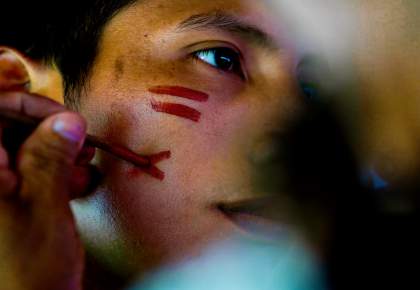
Panagsango iti panakapukaw, panangsalaknib iti biag (Ilocano)
Ilocano Film Launch : Panagsango iti panakapukaw, panangsalaknib iti biag. Daytoy a pabuya ti mangibaga kadagiti istorya maipanggep kadagiti peggad kadagiti kinabaknang ti aglawlaw, ti krisis iti klima, ken ti napardas a panakadadael ti nadumaduma a maris ti kultura: maysa a pakadagupan dagiti istorya ti panakapukaw a mangit-ited peggad iti panagbiag ti tao iti rabaw ti planeta.
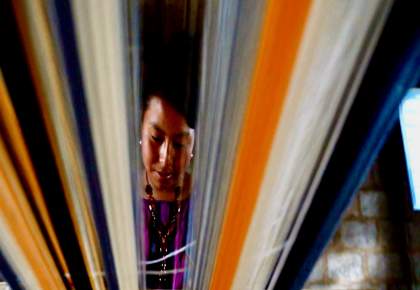
Facing Extinction, Defending Life (ENGLISH)
FILM: We hear from indigenous leaders around the world who are taking action and developing indigenous-led solutions to the global threats to biodiversity, the climate emergency, and the rapid destruction of cultural diversity.

LifeMosaic is hiring
Do you want to join LifeMosaic's dedicated team? We are seeking a Programme Officer to support indigenous movements in Indonesia. Deadline for applications is 16th September 2019.
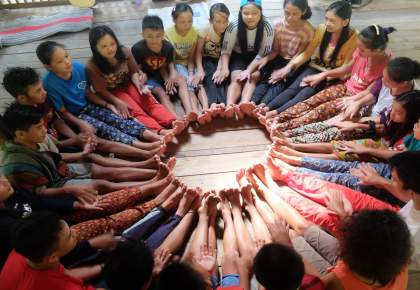
LifeMosaic Launches Indigenous Education Toolkit
LifeMosaic and YP-MAN are launching Back to the Village: A Toolkit on Indigenous Education. This toolkit is for indigenous educators, indigenous school initiators, or for anyone that is interested in education that helps sustain diverse expressions of humanity.
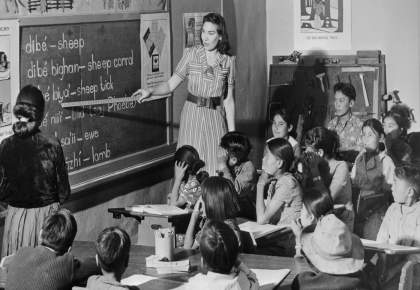
Native Language Schools Are Taking Back Education
More than a century ago, the last fluent speakers of Wôpanâak passed away. Now this school is working to revive the language. (By Yes! Magazine)

The Hawaiian language revival
Reflections on Hawaii's inspirational native language revitalization movement (By Keala Carter: Source Intercontinental Cry)
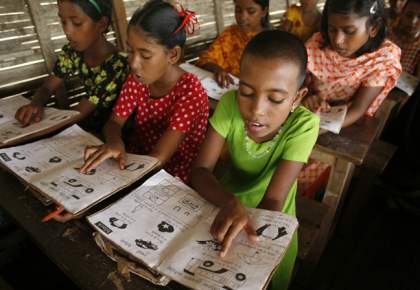
It’s a boat. It’s a school. It’s a livelihood booster
Each year, during the monsoon season, millions of children in Bangladesh miss out on education when schools are forced to close because of flooding. (By Mohammed Rezwan)
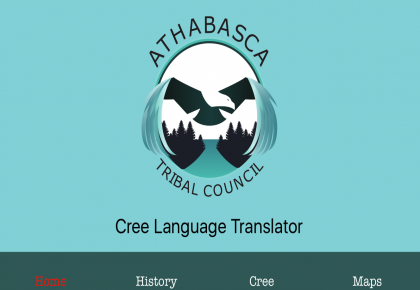
Cree app launched by the Athabasca Tribal Council to help preserve indigenous language
The Athabasca Tribal Council wants to make sure indigenous languages are not lost. So they created an app to put language back into the hands of youth. (By Global News)
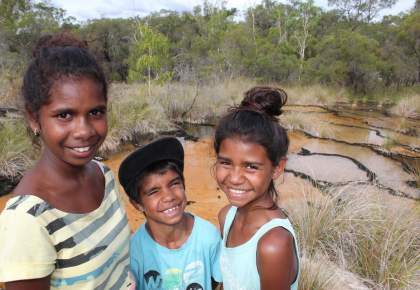
Stop focusing on ‘the problem’ in Indigenous education, and start looking at learning opportunities
An article encouraging us to look closer at the 'opportunity to learn gap in indigenous peoples schooling in Australia (By: The Conversation)
-
Documents and Downloads
Call of the Territory
Indigenous Education: The Call of the Territory is a book dedicated to the dynamic and exciting Indonesian indigenous education movement. The book provides an overview of what indigenous education is and why it is needed; investigates the roots of the Indonesian indigenous education movement; and describes a wide variety of decolonising educational initiatives that place indigenous knowledge, language and cosmologies at the heart of the educational experience. (Serge Marti / LifeMosaic / YPMAN 2019)
- Call of the Territory (Low Resolution) (pdf - 2 MB)
- Call of the Territory (Mid Resolution) (pdf - 10 MB)
- Call of the Territory (High Resolution) (pdf - 14 MB)
Tugdaan Indigenous High School
Information about Tugdaan Mangyan Centre of Learning and Development, to accompany the Video - Tugdaan Indigenous High School (LifeMosaic 2018)
Pamulaan Centre for Indigenous Peoples Education
Pamulaan Centre for Indigenous Peoples Education - an overview of this inspirational indigenous university in Davao, The Philippines. This information accompanies the video Pamulaan Indigenous University. (LifeMosaic 2018)
Grassroots Leadership and Popular Education in Indonesia: Introduction and Summary
Grassroots Leadership and Popular Education in Indonesia is a new publication by LifeMosaic and The Samdhana Institute. The book sets out to analyse and recommend ways to support grassroots leadership development and popular education in order to strengthen movements for social and environmental change – in Indonesia and around the world. The book is for grassroots leaders, activists, educators and movement builders in Indonesia and beyond, for all those participating in systemic change towards a more equitable and sustainable future, with the hope that in these pages there is a spark that gives you energy on your journey. Please read this Introduction and Summary, the first chapter of the book to be serialised. (The Samdhana Institute / LifeMosaic, 2015)
- Grassroots Leadership and Popular Education in Indonesia: Introduction and Summary (pdf - 1 MB)
- Chapter 1: Context and Challenges (pdf - 475 KB)
Pathways to Education Pamulaan Case Study
PAMULAAN CENTER FOR INDIGENOUS PEOPLES’ EDUCATION: LEADING THE WAY
Other videos
Schooling the World
An important film that sets out the nature of western educaction and the harm that it is inflicting on many indigenous cultures.
The Forbidden Education
The Forbidden Education is a documentary film that questions the logic of modern schooling -and our very understanding of education- by highlighting different and unconventional educational experiments that suggest the need of a new educational paradigm. The Forbidden Education aims to inspire thoughtful societal debate about the fundamental structure of school, encouraging the development of a comprehensive education centered on love, respect, freedom and learning.
Iskay Yachay: Two Kinds of Knowledge
This video brings the voices and minds of campesinos from Cusco, Peru. They explain what school they want for their children. What education is needed for life to flourish and for the strength of ancestral times to be carried over to new generations. Over the past decade the Nucleus for Andean Cultural Affirmation has been working in Cusco with groups of rural teachers and parents in order to attain an understanding of education and cultural diversity. The reflections they make on the way in which Andean children learn of both worlds, Western and Andean, lead them to unexpected conclusions that deserve to be listened to and taken into account.
Do schools kill creativity? Ted Talk by Sir Ken Robinson
Sir Ken Robinson makes an entertaining and profoundly moving case for creating an education system that nurtures (rather than undermines) creativity.
Interview with Mereana Taki on Learning
Mereana Taki is an indigenous Maori. In this video she shares the Maori views of learning, intelligence, and child development.
Education For a Sustainable Future
Education For a Sustainable Future presents information on how today's practices in schools are socially unsustainable. The documentary film critically analyses what is considered socially relevant in a new education system which brings out the most potential in all of humanity whilst also detailing specific educational methods from a wide range of sources on how to nurture social skills, critical thinking techniques and a larger variety of important practices to positively reinforce from our earliest years onwards. It must be recognised that a sustainable education is one of the most critical components of any advanced society. Education For a Sustainable Future is an independent film production and has been uploaded online for free download and distribution. The views expressed in this documentary are not necessarily shared by the originators of source material presented.
War on Kids
Focusing on public education, The War on Kids demonstrates how American public schools have become modeled after prisons in response to fear and a burgeoning intolerance of youth. The oppressive environment that students are subjected to, coupled with brutal responses to any transgression including the drugging of children,are shown to have long-term repercussions beyond creating a generation of dysfunctional adults. Ultimately, democracy itself is under siege. The War on Kids is a documentary on Public Education in America. While several documentaries on schools have come out since The War on Kids, these films tend to be either propaganda for charter schools or look at symptoms without any appreciation or understanding of underlying issues. To be a great documentary, it is essential to do the necessary work and dig deeper to uncover the heart of the problems observed. The numerous failures and pathologies associated with school are predominantly due to its autocratic structure. Because no one wants to voluntarily relinquish power, this fundamental problem is never addressed or even recognized.
Related links
Pamulaan University for Indigenous Peoples’ Education
The website for Pamulaan Centre for Indigenous Peoples' Education in Davao, Philippines
Tugdaan Mangyan Center for Learning and Development
The website of Tugdaan Indigenous High School in Mindanao, The Philippines
Schooling the World
Schooling the world is an enlightening film showing clearly how the modern system of education oppresses children, especially thise from indigenous and other culturally rooted communities.
Ecoversities
Ecoversities: learners and communities reclaiming diverse knowledges, relationships and imaginations to design new approaches to higher education.
Colours of the Alphabet
Colours of the Alphabet is a new feature documentary film on language and childhood in Africa, telling the story of three Zambian children and their families over two school terms, and asking the question: does the future have to be in English? When nearly 40% of the world’s population lack access to education in their own language, the film offers an intimate, moving and often humorous insight into a global phenomenon from the unique perspective of three innocent children.
Alaskan Native Knoweldge Network
A website dedicated to resources for compiling and exchanging information related to Alaska Native knowledge systems and ways of knowing.
People for Education
People for Education is a Canadian independent, non-partisan, charitable organization working to support and advance public education through research, policy, and public engagement.
-






